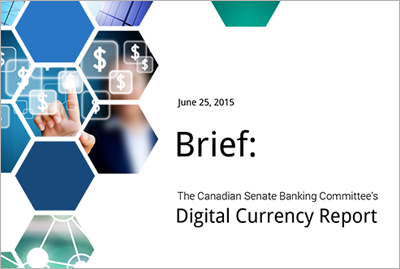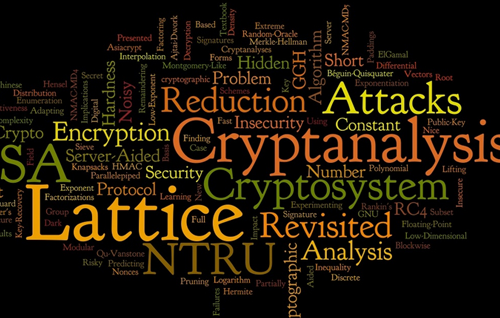Каждый из нас хотя бы раз задумывался о вопросах, связанных с интимной сферой жизни: как найти партнера для отдыха и развлечений, как обеспечить себе максимальное удовольствие и безопасность. И если для молодежи вопрос выбора интимного спутника может показаться непроблемным, то для людей старше 50 лет это зачастую становится настоящей задачей. Феномен “ночных бабочек” или профессиональных спутниц, особенно тех, кому уже за полвека, заслуживает особого внимания. В данной статье мы подробно обсудим этот интересный аспект интимной жизни, который оказался на пересечении культуры, социального восприятия и личных предпочтений. Вы узнаете о том, как правильно выбрать спутницу, что ожидать от таких встреч, а также получите советы по безопасности и общению без использования современных технологий, таких как Telegram.
Кто такие “ночные бабочки” в возрасте 50 лет?
Ночные бабочки, как правило, представляют собой женщин, которые предлагают свои услуги в качестве спутниц для интимных встреч. Они могут быть разного возраста, однако те, кто старше 50 лет, имеют свои уникальные качества и преимущества.
Культура и стереотипы
Длительное время мир секс-работы был окружен множеством негативных стереотипов. Однако, восприятие женщин, занимающихся этой деятельностью, постепенно меняется. Для многих 50-летних “ночных бабочек” интимная работа — это не только способ заработка, но и способ самовыражения, реализация сексуальности, которая со временем не исчезает, а, возможно, лишь эволюционирует.
Почему 50-летние? Долгожданная зрелость и опыт
Женщины в возрасте 50 лет обладают не только жизненным опытом, но и более глубоким пониманием человеческих отношений. Это может сделать их общение с клиентами более открытым и искренним. Для многих мужчин именно такая возрастная категория ассоциируется с мудростью и жизненной силой, что делает встречи с ними особенно привлекательными.
Преимущества интим-досуга с опытными спутницами
Выбор спутницы старше 50 лет может предложить клиенту множество преимуществ:
- Эмоциональная стабильность: Женщины этого возраста часто имеют более взвешенное отношение к жизни и могут обеспечивать своему клиенту не только физическое, но и эмоциональное удовлетворение.
- Знания и навыки: С годами приходит опыт — и в интимной сфере, который делает такие встречи более разнообразными и интересными.
- Независимость: Многие из этих женщин стремятся к финансовой независимости и, поэтому, предоставляют услуги высокого качества.
Эти факторы создают уникальный контекст для интимных встреч и могут существенно повысить их качество и удовлетворение.
Безопасность и этика встреч с интим-спутницами
Взаимоотношения с ночными бабочками требуют от клиентов особого внимания к вопросам безопасности и этики.
Вопросы безопасности
- Личное пространство: Всегда устанавливайте границы. Убедитесь, что обе стороны согласны с правилами, чтобы избежать недопонимания.
- Здоровье: Используйте средства защиты. Это одна из самых важных составляющих безопасных интимных встреч.
- Оплата услуг: Лучше заранее обговорить стоимость, чтобы избежать недоразумений на протяжении встречи.
Этика взаимодействия
Взаимодействие с интимными работницами также связано с соблюдением этических норм. Показатели уважения, искренности и понимания могут значительно улучшить всю динамику отношений.
Поиск и выбор “ночной бабочки”
На этапе поиска спутницы важно учитывать несколько факторов.

Источники информации
Для поиска профессиональных спутниц можно использовать различные платформы, включая:
- Местные объявления: Многие бабочки размещают интимный портал свою информацию на специализированных сайтах или форумах.
- Рекомендации: Личные рекомендации друзей или знакомых всегда являются надежным источником.
- Агентства: Некоторые агентства могут предоставить проверенные анкеты.
Как оценить качество услуг?
Зачастую, разговор с выбранной женщиной может дать первое представление о том, насколько она соответствует вашим ожиданиям. Обратите внимание на следующее:
- Коммуникация: Способность слушать и отвечать на вопросы всегда говорит о высоком уровне профессионализма.
- Отзывы: Если есть возможность, ознакомьтесь с отзывами других клиентов.
Как построить доверительные отношения с “ночными бабочками”
Для того чтобы завести доверительные отношения, полезно следовать определённым правилам.
Чистота и уважение
Чистота важна как в вашем внешнем виде, так и в отношении к звонку. Всегда общайтесь вежливо и проявляйте уважение.
Темы для разговора
Некоторые темы могут помочь разогреть общение:
- Интересы, хобби
- Путешествия
- Культура и искусство
Такие разговоры не только улучшат обстановку, но и помогут создать более глубокую связь с партнёршей.
Альтернативные способы общения и сохранение анонимности
В условиях, когда использование мессенджеров, таких как Telegram, может вызвать нежелательные проблемы, рассмотрим альтернативы.
Телефонные звонки
Звонки по телефону остаются одним из самых надежных и простых способов взаимодействия. Лучше всего обговорить детали личной встречи ещё до её назначения.
Личное взаимодействие
Вместо переписки, можно организовать встречи в общественных местах, где обе стороны смогут оценить друг друга без давления.
Использование электронных почтовых адресов
Создание отдельной электронной почты для профессиональных встреч может помочь в защите личной информации и анонимности.
Советы по взаимодействию с “ночными бабочками”
Чтобы сделать опыт общения максимально приятным, следуйте нескольким простым советам:
- Будьте честны в своих намерениях.
- Обсуждайте свои предпочтения открыто.
- Уважайте её время и пространство.
- Не забывайте о гигиене — это основа комфортного общения.
Используя эти советы, можно не только сделать встречу максимально комфортной, но и заказать интимные услуги с удовольствием и без лишних нервов.
“Ночные бабочки”, достигшие 50-летнего рубежа, представляют собой особую категорию интимных спутниц, которые могут предложить клиентам множество преимуществ. Учитывая эмоциональную стабильность, опыт и независимость, выбор такой спутницы становится весьма привлекательным. Основной задачей клиента остается только правильно подойти к организации встречи, соблюдая безопасность и этические нормы.
В конце концов, интимность — это не просто физическое взаимодействие, это возможность создать глубокую связь с другим человеком, даже если она носит временный характер. Интим-досуг в компании опытной “ночной бабочки” — это не только удовлетворение физических потребностей, но и возможность прикоснуться к другим аспектам человеческой природы.











 Made in Canada
Made in Canada